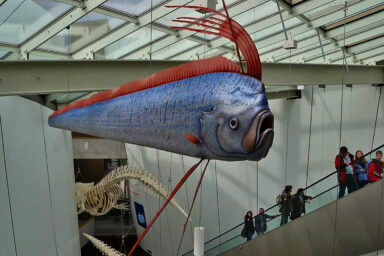Treasury, Commerce Departments Hacked in Months-long Global Cyberespionage Campaign
Federal Government Sues Alabama Over Prison Conditions ; Electric Vehicles’ Dirty Secret ; and More Picks 12/14
‘Deliberately Indifferent’: Federal Government Sues Alabama Over Prison Conditions (Dana)
From the Montgomery Advertiser: “The U.S. Department of Justice has sued Alabama and the state Department of Corrections, alleging the state continues to violate the rights of its prisoners in facilities that are ‘riddled’ with violence. The lawsuit is an escalation of a years-long federal probe into Alabama’s men’s prisons that first resulted in a scathing 2019 report outlining unsafe and unsanitary living conditions, in addition to rampant drug abuse and violence among its prison populations.”
New Asylum Rule Bars Gays, Lesbians Facing Persecution, Immigrants Threatened With Violence (Reader Steve)
From the San Francisco Chronicle: “Women fleeing domestic violence or rape will be virtually barred from asylum in the United States under a new Trump administration rule. So will lesbians and gays facing persecution in their homeland, immigrants threatened with death by gangs and many other categories of migrants traditionally eligible for refuge in the United States. … The regulation declares that private abuse based on gender, gang affiliation, financial status or personal motives such as hatred and retribution would not be enough to establish a fear of persecution except in ‘rare cases.’”
The Curse of ‘White Oil’: Electric Vehicles’ Dirty Secret (Reader Jim)
The author writes, “Lithium-ion batteries are used to power electric cars, as well as to store grid-scale electricity. (They are also used in smartphones and laptops.) But Europe has a problem. At present, almost every ounce of battery-grade lithium is imported. … Lithium deposits have been discovered in Austria, Serbia and Finland, but it is in Portugal that Europe’s largest lithium hopes lie. The Portuguese government is preparing to offer licences for lithium mining to international companies in a bid to exploit its ‘white oil’ reserves. Sourcing lithium in its own back yard not only offers Europe simpler logistics and lower prices, but fewer transport-related emissions. It also promises Europe security of supply — an issue given greater urgency by the coronavirus pandemic’s disruption of global trade. Even before the pandemic, alarm was mounting about sourcing lithium.”
He Pretended to Be Trump’s Family. Then Trump Fell for It. (Russ)
The author writes, “For months, a 21-year-old Trump supporter impersonated Trump family members on Twitter, spreading conspiracy theories, asking for money and eventually drawing the attention of the president.”
Is It Safe to Gift Homemade Holiday Baked Goods During the Pandemic? (Sue)
The author writes, “Like many holiday traditions, the COVID-19 pandemic has drastically altered the etiquette surrounding sharing homemade food and baked goods this year. A box of homemade cookies, once a thoughtful and low-cost alternative to gift giving, has become a bit of a paradox amid the second wave of the pandemic, leaving many asking whether it’s still safe to accept treats from someone outside of your immediate family or cohort. Despite evidence that the virus that causes COVID-19 isn’t easily spread through food, Ebrahim Noroozi, food scientist and occupational health and safety specialist at McGill University, suggests you may want to skip it.”
Physicists Solve 150-Year-Old-Mystery of Equation Governing Sandcastle Physics (Dana)
The author writes, “Building sandcastles at the beach is a time-honored tradition around the world, elevated into an art form in recent years thanks to hundreds of annual competitions. While the basic underlying physics is well-known, physicists have continued to gain new insights into this fascinating granular material over the last decade or so. The latest breakthrough comes from Nobel Laureate Andre Geim’s laboratory at the University of Manchester in England, where Geim and his colleagues have solved a mathematical puzzle — the ‘Kelvin equation’ — dating back 150 years.”



